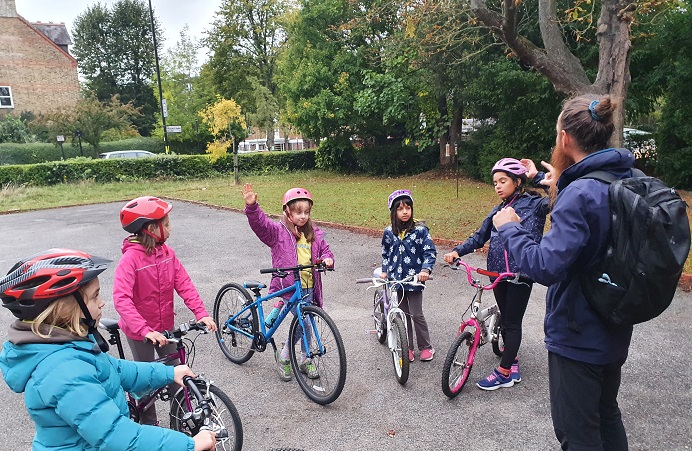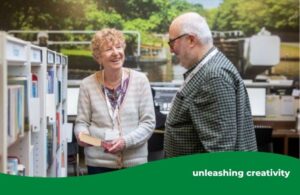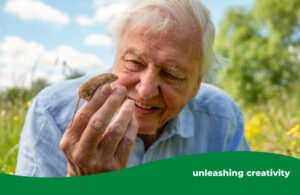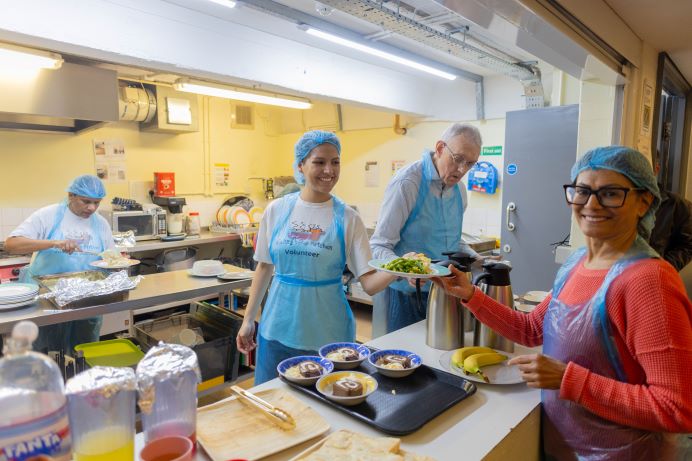Active travel options such as cycling, walking and scooting are great options for local people of all ages as we look to boost our fitness and stay green. From schools to local groups, the message is really catching on.
And with government COVID-19 restrictions and social-distancing rules likely to be in place for some time, finding alternatives to using public transport without jumping into your car remains as important as ever.
But active travel does not need to be a quick-fix solution just for lockdown. The benefits of choosing to walk and cycle for shorter journeys are clear at any time – and improved air quality and less congestion are just a part of the story.
Local people have been taking a few simple steps towards including active travel in their daily routine and the long-term benefits are clear.
A great example is Ealing resident Kirsty Fletcher who helps run the 4th Ealing Brownies and set up cycling training as part of the activities offered by the Brownies group they run.
Kirsty explains: “We were looking to add another activity that would help with our group keeping active and decided to introduce some cycling training – which proved a huge success.
“We were able to provide training for 15 brownies aged seven-10 over a period of a month last autumn. We taught techniques to help stopping, braking and generally staying safe. Sessions were an hour and you can see the children growing in confidence as they developed their skills.”
“Two girls could not cycle before prior to the training so we were able to offer one to one lessons. Even by one session we saw great progress and a week later one girl had achieved level 1 cycle provision.
“We borrowed bikes that were more suitable for that age group, as part of the Ealing Council cycle scheme. Due to popularity of cycling during lockdown, some girls did not have bikes at the right size, borrowing bikes allowed them to feel more comfortable cycling.
“We spilt the group into cycle ability from confident to nervous cyclists and this made a big difference because there is a wide range of abilities and we want to ensure that the training is suitable for all the girls.”
The sessions took place before lockdown but Kirsty believes the group can still build on the success of the training. She said: “We are working virtually at the moment to ensure that we follow the rules and maintain social distancing – it has been really popular and the brownies have engaged really well and achieved loads in a short space of time.
“Their newly acquired skills helped them to feel confident to cycle during leisure time, throughout lockdown, and some may be able to cycle to school when they return in March.”
The active travel message has not been lost on local schools too. Ealing and Notting Hill High School, for example, has been providing a huge range of fun and educational activities to help its pupils learn about the benefits of active travel and staying safe and sustainable on local roads.
Notting Hill & Ealing High School, GDST has been providing a huge range of fun and educational activities to help its pupils learn about the benefits of active travel and staying safe and sustainable on local roads.
Bella Henry, Facilities Manager at the school, has been involved every step of the way and explains: “Both Senior and Junior Schools pupils and staff are involved and we have a team of Eco Representatives in Year 10 to Year 12 who actively promote sustainable travel to incorporate good health from walking and cycling to school.
“We are looking at ways to help build on the message around sustainable travel within the school and the local community as this is very important for the health of our pupils and the environment.
“We have already achieved a TFL Bronze Star Award and are now working towards achieving a TFL Gold Award due to the many activities we have completed. All this is to promote TFL’s campaign for safe and active travel throughout London.
“Our road safety week was also a great success – we set up an obstacle course where our pupils could see the difference in the time it took to complete if they were texting on their phones – it was a great way of practically showing how important it is to concentrate on the road.
“We’ve completed a Green Week, too – a whole school event with lots of fun green activities – we asked everyone to reduce waste and plastic, sustainable travel and gave out more than 700 reward stickers – it really shows you how many pupils got involved.
Bella and her colleagues are aware that pollution can be a real problem around schools and worked with pupils on a successful anti-idling campaign to highlight the issue.
She says: “It was one of the most popular initiatives – we designed posters and gave out fair-trade sweets to parents and local drivers to encourage and thank them for switching off engines when stationary and to raise the issues air pollution can cause, particularly around schools.”
“We are working towards getting everyone to think more about ways which can reduce pollution, whether parents, cars in the vicinity, or even the local ice cream van.”
The council has also recently joined a London-wide anti-idling campaign to highlight the issue.
During Lockdown the school has carried on supporting pupils with activities designed to encourage active travel, as Bella explains: “We set up a virtual Eco-board promoting active travel options. Our PE Department along with our Charities Reps set up a challenge to raise funds for The Log Cabin.
“The challenge for staff and girls was to walk and cycle and log their mileage. We managed to count enough miles to reach Brighton, Liverpool and even Paris, by the end and raise some funds for the Log Cabin.
“As a school we are committed to promoting and encouraging sustainability for the future.”
Increased time on a bike or on foot has proven benefits to mental and physical health and the council supports a range of initiatives to support residents to take these steps.
DR BIKE cycle maintenance events and cycle training via TfL’s online courses are available to local people to help them get started.
More cycle lanes have been added across the borough, with many new segregated routes added during the pandemic.
The School Streets programme is now in place in some schools, helping create pedestrian and cycle-only zone at opening and closing times.
Council leader Julian Bell said: “A one-kilometre trip can be walked in 13 minutes, whilst a three-kilometre trip can be cycled in the same time at a leisurely pace so, for short journeys, active travel is by far the best option for local people.
“It is encouraging to see these great examples of local people and schools taking the lead in providing opportunities, education and training to help young people engage in active travel and we will support this wherever possible.”






